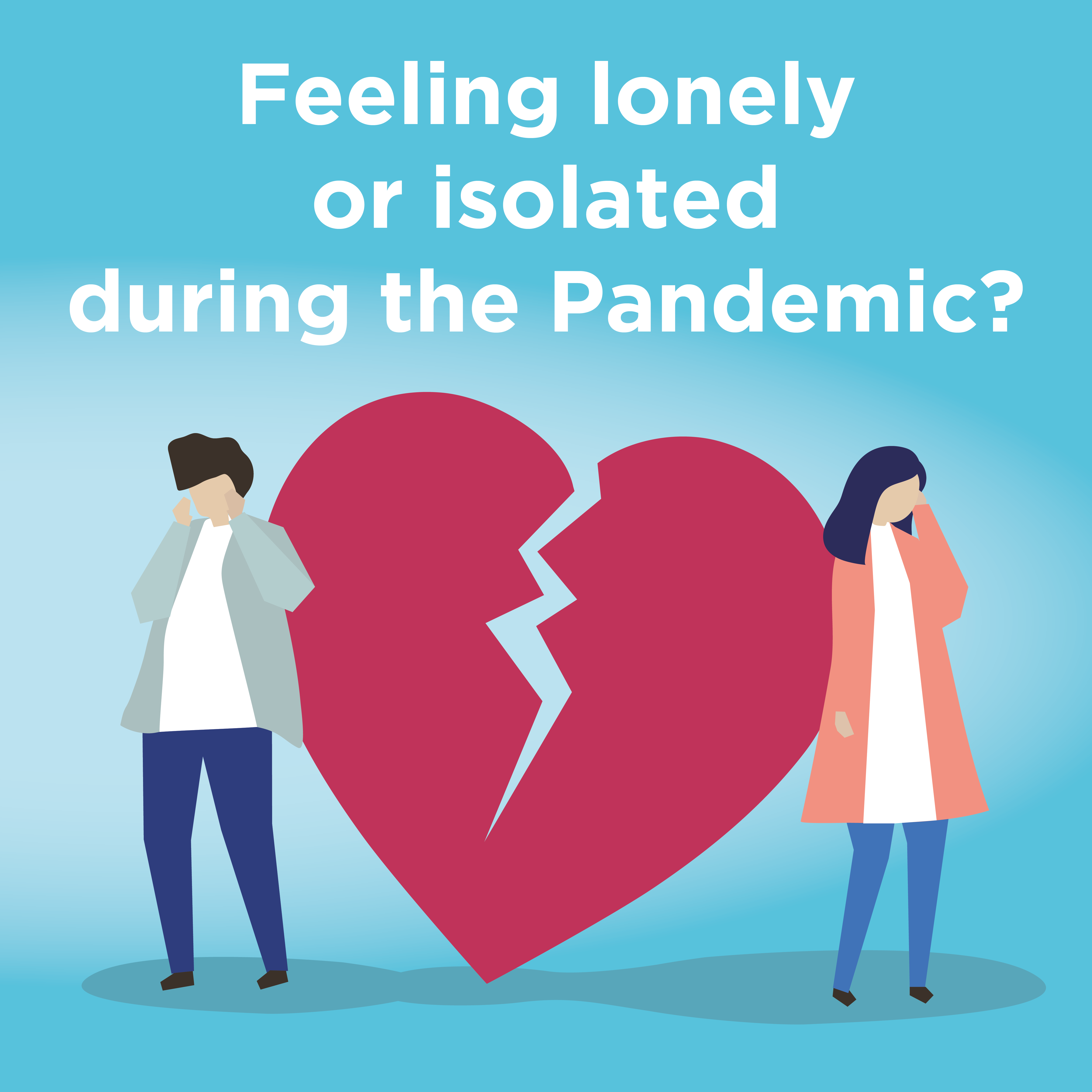Feeling lonely or isolated during the Pandemic?

The elderly and people with chronic health conditions are vulnerable to loneliness, which can harm emotional and physical health. Loneliness is nothing new - there has possibly been a pandemic of loneliness for the last 20 to 30 years.
Tackling Loneliness
Whether lonelier now because of the pandemic or lonely before it, take steps to address the feelings:
Enrichment
Pursue a new activity. It also could lead to socialising with others who share that interest. Now is the time to learn a language or musical instrument, read challenging books, or master a new form of technology or creative activity. “Every crisis is an opportunity.”
Physical activity
Exercise will reduce loneliness by improving brain function and emotional regulation.
Mindfulness
Pay attention to, accept, and learn to live with your feelings of loneliness without judging or reacting to them.
Connect in person
Reach out to others and make them feel needed and loved. Ask your neighbours how they’re doing and if they need anything. Try to take an active role in changing your level of social involvement.
Gratitude
A study found that when older adults engaged in a daily writing activity focusing on what they were grateful for, their feelings of loneliness lessened. Express your gratitude to other people - it may lead to an upward spiral, eliciting positive responses and increased positive thinking and feelings all around. A win-win situation!
Wisdom
A complex trait that encompasses self-reflection, empathy, compassion, and spirituality, wisdom is inversely associated with loneliness. People who score high on wisdom are not lonely. People can acquire wisdom by developing greater compassion and the ability to recognise emotional triggers and respond to them appropriately. One can be alone but content.